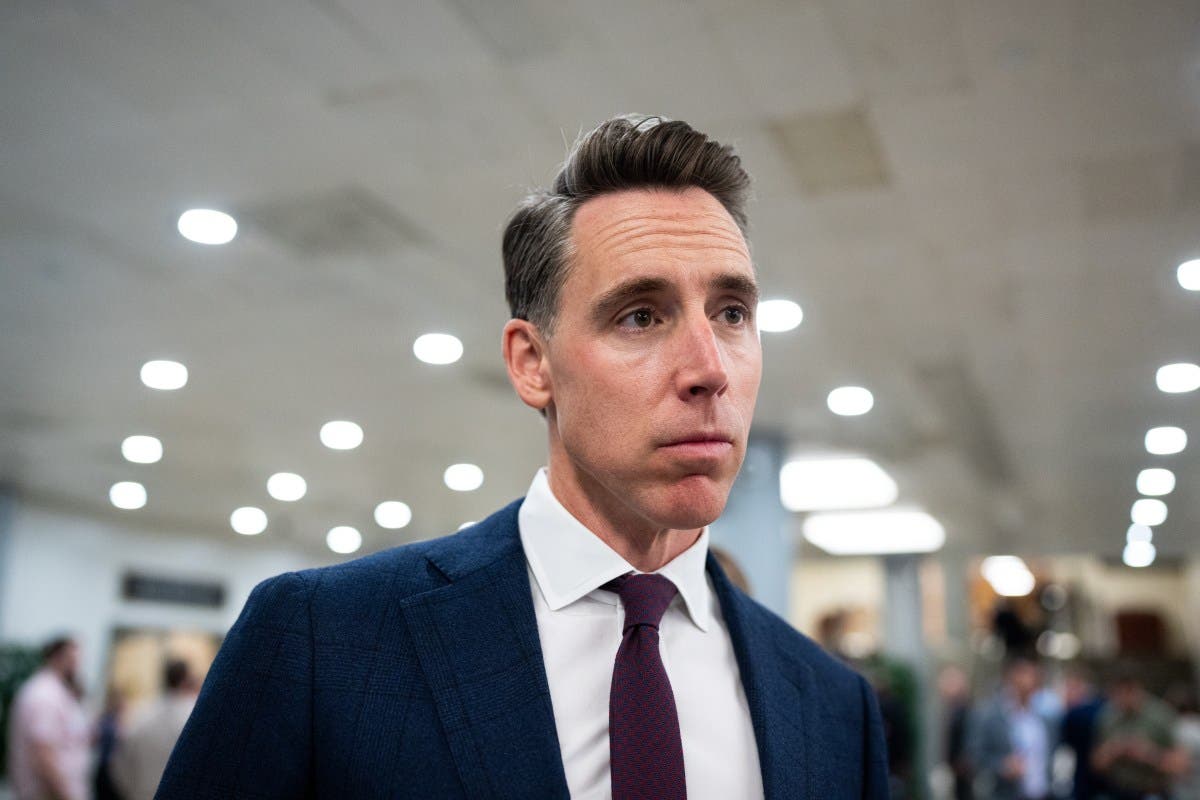
SNAP benefit update: Senator pushes plan to reinstate funding amid shutdown
Missouri Republican Senator Josh Hawley introduced a bill Wednesday that would reinstate funding for the Supplemental Nutrition Assistance Program (SNAP) as the government shutdown stretches into its third week.
Hawley’s bill came amid heated inter-party disagreements over long-term spending priorities, with each party blaming the other for the growing risk to essential services.
“We need to start forcing Democrats to make some tough votes. We need to start holding their feet to the fire,” Hawley told Fox News Digital. “I mean, do they really not want people to be able to eat? This situation is ridiculous.”
Newsweek reached out to Hawley’s office for comment through his website Wednesday.
Why It Matters
SNAP provides food assistance to approximately 42 million people—nearly one in eight Americans—through monthly benefits used to purchase groceries.
With the shutdown now the second-longest in U.S. history, the SNAP program’s continuity is at risk for the first time since the federal government last faced comparable funding threats.
State governments in Texas, New York, Minnesota, Pennsylvania, and others have warned that unless Congress agrees on new funding, November benefits cannot be distributed.
What To Know
Senator Hawley announced new bills targeting federal funding for the Farm Service Agency and the SNAP program, framing his effort as a direct challenge to Democratic lawmakers.
Hawley told Fox News Digital that his legislation aims to force action to restore funding for agriculture and food assistance services—two sectors vulnerable due to the timing of the shutdown during peak harvest season in agricultural states like Missouri.
At the national level, the U.S. Department of Agriculture sent advisories to states in early October, warning that funds to pay full November SNAP benefits would not be available without new congressional appropriations.
SNAP, serving more than 40 million Americans at an annual cost of just over $100 billion, has operated using contingency funds in past shutdowns.
As of 2025, USDA contingency reserves were estimated at roughly $6 billion—short of the $8 billion required to fund a full month of benefits nationwide. This shortfall means that, barring swift congressional action, states will lack funding to process or distribute SNAP funds after October.
Officials in several states also confirmed the halt on new SNAP applications, as well as uncertainty regarding reimbursement from the federal government for any out-of-pocket payments states might attempt to cover.
The risk of network shutdowns at grocery retailers adds to recipient anxiety, as electronic benefit transfer (EBT) cards are dependent on state-level uploads of federal funds each month.
While President Donald Trump approved emergency funding for military pay earlier this month, the White House and USDA did not confirm similar emergency measures for SNAP, although $300 million was provided to temporarily support WIC.
Separate from the spending crisis, recently enacted federal law changes tightened work requirements for certain SNAP recipients and shifted part of administrative costs to states, scheduled for full implementation by 2026. These changes remain in force regardless of shutdown status.
What People Are Saying
Senator Josh Hawley (R-Mo.) told Fox News Digital on Wednesday: “We need to start forcing Democrats to make some tough votes. I mean, do they really not want people to be able to eat? This situation is ridiculous.”
John Thune, Senate Majority Leader (R-S.D.) told Fox News Wednesday: “I mean, they want $1.5 trillion in new spending. They want free healthcare for people who are noncitizens in this country. That is just a flat nonstarter. It doesn’t pass the Senate. It won’t pass the House. It won’t be signed into law by the president.”
Ronald Ward, Acting Head of SNAP, wrote in a USDA letter dated October 10, 2025: “If the current lapse in appropriations continues, there will be insufficient funds to pay full November SNAP benefits for approximately 42 million individuals across the Nation.”
Georgia Machell, CEO, National WIC Association, in a statement to ABC News Tuesday: “Without additional funding, State WIC Agencies may be forced to take drastic measures that prevent families from accessing the services they need, such as halting food benefits. This would directly jeopardize the health and nutrition of millions of mothers, babies, and young children.”
What Happens Next
SNAP recipients are expected to receive benefits through October, but barring action from Congress or special administrative measures, states may halt November payments.
Lawmakers face rising pressure from advocacy groups and state officials to find a compromise, as failure to secure new appropriations would trigger interruptions in food aid programs for tens of millions of Americans starting November 1.
Senator Hawley’s proposed bills could force Senate votes in the coming days, but as of yet, no breakthrough has been signaled by congressional leadership.
State agencies and food banks are preparing for possible increases in demand should the benefits lapse, but logistical and funding hurdles remain significant.
First Appeared on
Source link






